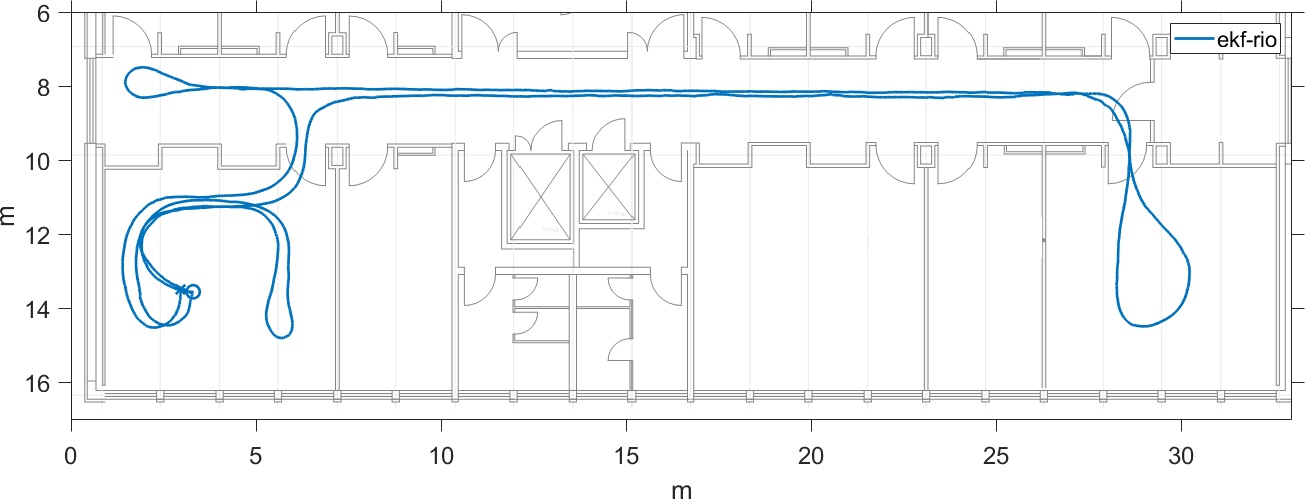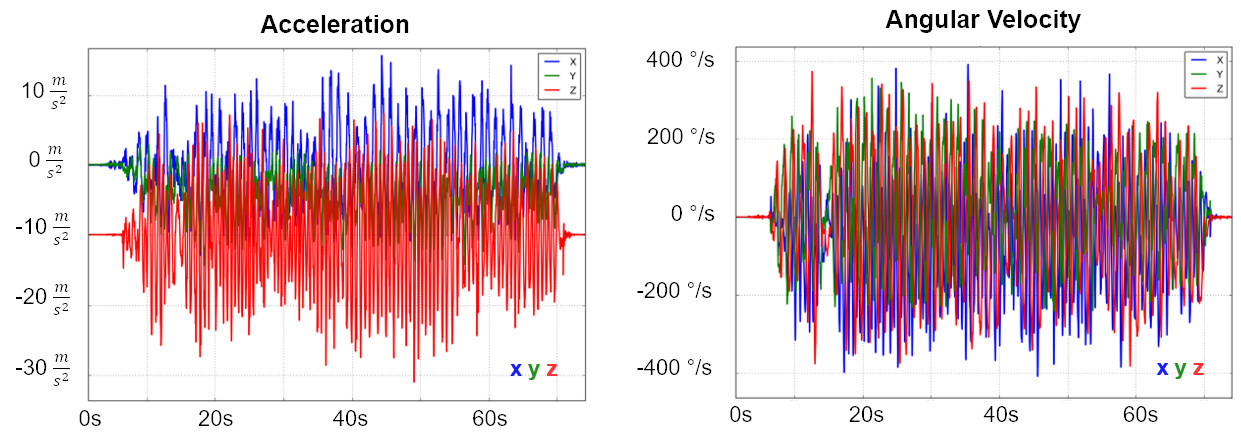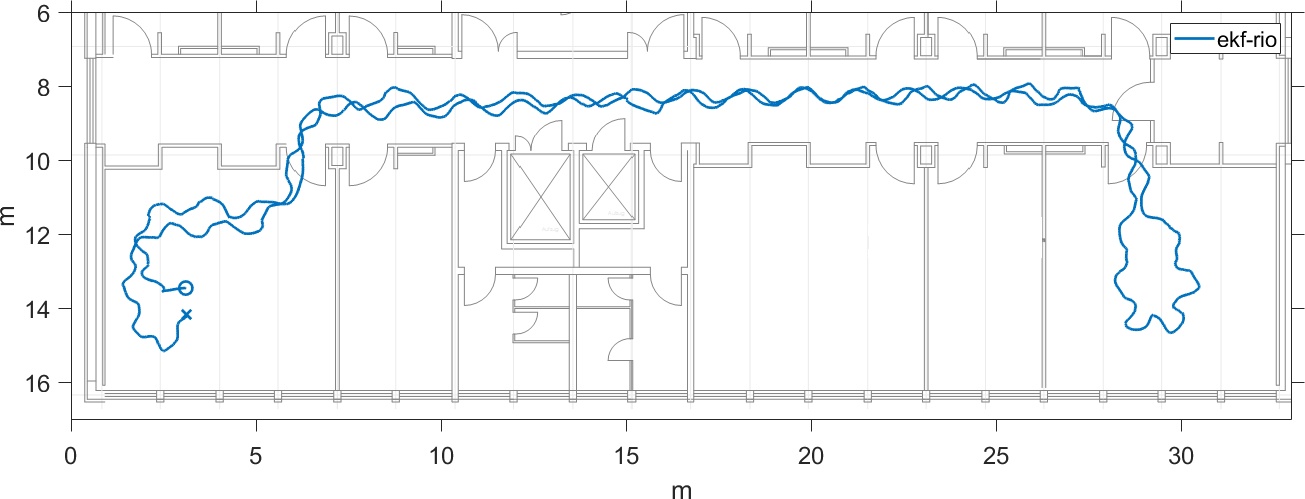This package provides an efficient C++ implementation of EKF-based Radar Inertial Odometry with online calibration of the radar sensor extrinsic calibration. Based on a single radar scan, the 3D radar ego velocity is estimated using the radar_ego_velocity_estimatior package. Fusion with intertial data is carried out using an Error State EKF. In addition, barometer measurements can be fused as well for improved z-axis estimation. We are using the North East Down (NED) convention within our navigation filter. Thus, the published filter state follows that convention. The publishers of the pose and twist topics, however, follow the ROS convention REP-103. Details on the published topics are provided below.
If you use ekf_rio for your academic research, please cite our related paper:
@INPROCEEDINGS{DoerENC2020,
author={Doer, Christopher and Trommer, Gert F.},
booktitle={2020 European Navigation Conference (ENC)},
title={Radar Inertial Odometry With Online Calibration},
year={2020},
pages={1-10},
doi={10.23919/ENC48637.2020.9317343}}
The dataset vicon_easy yields the results below.
It takes only 0.79s to process the dataset vicon_easy (length: 84s) using an Intel NUC i7-8650U (>100 x real-time).
Alignment with the ground truth using the initial pose yields:
Position error analysis in [m]:
- Mean error: 0.011, -0.030, -0.022
- Mean absolute error: 0.011, -0.030, -0.022
- Mean error norm: 0.088
- Error STD: 0.054, 0.057, 0.046
Velocity error analysis in [m/s]:
- Mean error: 0.001, -0.003, -0.000
- Mean absolute error: 0.020, 0.018, 0.014
- Mean error norm: 0.035
- Error STD: 0.028, 0.025, 0.018
Run the demo in rosbag mode which also starts rviz for visualization, does an evaluation and generates the analysis plots shown above:
roslaunch ekf_rio demo_datasets_ekf-rio_rosbag.launch do_plot:=True
The results of the most recent main branch might diver a little, the results above have been created with: git checkout c147214.
Run without rviz and plotting:
roslaunch ekf_rio demo_datasets_ekf-rio_rosbag.launch do_plot:=False enable_rviz:=False
Run without radar trigger messages:
roslaunch ekf_rio demo_datasets_ekf-rio_rosbag.launch run_without_radar_trigger:=True
Run in online mode:
roslaunch ekf_rio demo_datasets_ekf-rio_ros.launch do_plot:=True
rosbag play --clock vicon_easy.bag
Our ekf_rio implementation provides two node for ROS interfacing:
- ros_node: Subscribes to all topics and does online processing
- rosbag_node: Reads a rosbag and runs ekf_rio at maximum speed
A set of demo parameters is given in ekf_rio_default. Most of the parameters can be changed online using rqt_reconfigure. Further documentation of the parameters can be found using the tooltip text in rqt_reconfigure and in the python files, see cfg.
Published topics are the same for both modes:
- ~state (ekf_rio/EkfRioState): full filter state (NED-convention)
- ~covariance (ekf_rio/EkfRioCovariance): diagonal elements of covariance matrix
- ~pose (geometry_msgs/PoseStamped): pose (ROS convention)
- ~twist (geometry_msgs/TwistStamped): twist (ROS convention)
- ~pose_path (nav_msgs/Path): pose path (ROS convention)
- ~radar_scan_inlier (sensor_msgs/PointCloud2): radar scan inlier used for velocity estimation
The standard format of the ti_mmwave_rospkg (version 3.3.0) is also supported.
Run the demo with radar trigger signal:
roslaunch ekf_rio ti_mmwave_ekf-rio_rosbag.launch run_without_radar_trigger:=False
Run the demo without radar trigger signal:
roslaunch ekf_rio ti_mmwave_ekf-rio_rosbag.launch run_without_radar_trigger:=True



